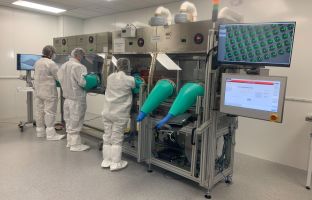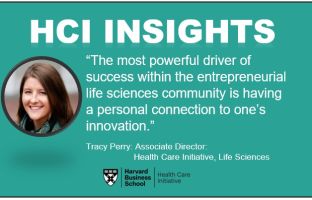As this year marks the 20th anniversary of World Cancer Day, it provides an opportune time to look back at the progress made in oncology over the past two decades. There have been great strides made in virtually all areas of cancer treatment:
US cancer drug approvals have increased each year, with a record number of novel drugs approved in 2018.
The death rate from cancer has decreased every year since 2000, including the largest single-year drop in cancer mortality ever reported in 2016-2017.
Successful mapping of the human genome has led to improved detection, prevention, and treatment for cancer patients.
However, one area that has not seen any significant progress at all is clinical trial enrollment. Only 5% of cancer patients enroll in clinical trials, a number that has remained virtually unchanged, over the past 20 years.1 Clinical trials are vital to the discovery of new treatments, as well as improvements to methods of detection and diagnosis. The medical community has stressed their importance for years, yet 95% of trials are still failing to get off the ground due to lack of enrollment. There have been numerous studies that explore why the failure rate is so high, but clearly there haven’t been any effective approaches to improve patient accrual. If the field of oncology hopes to see progress in this critically important aspect of treatment, it will have to find a new agent of change. That change won’t come from hospitals, physicians, or scientists, but from the patients themselves.
There are a multitude of reasons why cancer patients don’t enroll in clinical trials, including structural, demographic, and socioeconomic factors. These are complex issues that require large-scale systematic change to solve. Yet one of the largest barriers to accrual is simply a lack of information. Patients look to their physicians to inform them of clinical trials, but due to the rapidly-changing oncology landscape and emerging therapies, physicians struggle to stay up-to-date on available trials and who is eligible. Additionally, some physicians often “decide not to ask eligible patients about trial participation due to institutional or clinic time/reimbursement constraints, treatment preference, or other reasons.”2 This is where the power of patient knowledge can help drive trial enrollment forward.
The clinical trial landscape is complex and challenging to navigate, even for the most efficient clinician. There are many different types of trials, with varying goals, designs, patient mixes, and phases. While we rely on our physicians for guidance and options, their bandwidth is limited. They treat dozens of patients, most with different subtypes which may or may not have a trial available. In order to stay well-informed, patients need to turn to the largest pool of information available: other patients. The ubiquity of social media (such as Twitter and Facebook) has created a limitless resource of support and knowledge that can change the way patients learn about and take part in clinical trial opportunities.
Social media sites provide an easily accessible forum for cancer patients to take an active role in their own healthcare. In addition to invaluable emotional support, these groups can offer up-to-date practical information that can help improve trial enrollment. A recent study of disease groups on social media showed that patients provide valuable information to one another, including educational content, progress updates, and clinical trial recommendations, as well as practical tips, such as how to register and travel to the trials.3 The importance of this cannot be understated since “more than half (55.6%) of all cancer patients do not participate in trials because no trial is available for the patient’s cancer type and stage at the treating center.”4 Connecting with patients who have knowledge of existing trials can help fill the critical void that prevents clinical trials from even beginning.
This is not to say that social media will serve as a replacement for treatment or advice from physicians; it is merely a portal to help improve patient accrual. Patients are no longer passive about their treatment path. They are active participants who share data and information along the way so that others can benefit from it. The methods through which patients obtain health care information and interact with health care providers are rapidly evolving. This evolution is creating tremendous potential to enhance patient engagement. While contact with physicians and health care providers is limited, communication between patients can happen in real time without appointments, travel, or copays. Physicians, hospitals, and health care systems must learn about the role this plays in order to improve patient care.
Looking back on the trends of the past 20 years, the field of oncology can be optimistic that science will continue to make improvements in the lives of cancer patients. However, it will be patients helping patients that will drive clinical trial accrual forward. These patients make up a collective of tens of thousands of real world data points that can remove the barriers that have impeded enrollment. They can help with everything from identifying current trials and finding tissue matches to arranging travel and day care options. A cancer diagnosis is frightening, and can lead to feelings of helplessness. But patients are not helpless in their treatment; they hold the power to fundamentally change the way clinical trials are enrolled.
For additional information on current or future clinical trials, visit https://clinicaltrials.gov/. To find NCI designated cancer centers in your area, visit https://www.cancer.gov/research/nci-role/cancer-centers/find.
1https://ascopubs.org/doi/10.1200/EDBK_156686
2, 4https://academic.oup.com/jnci/article/111/3/245/5307078
3https://www.surgjournal.com/article/S0039-6060(17)30717-1/pdf







